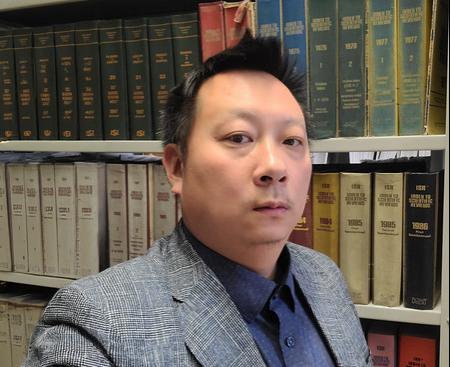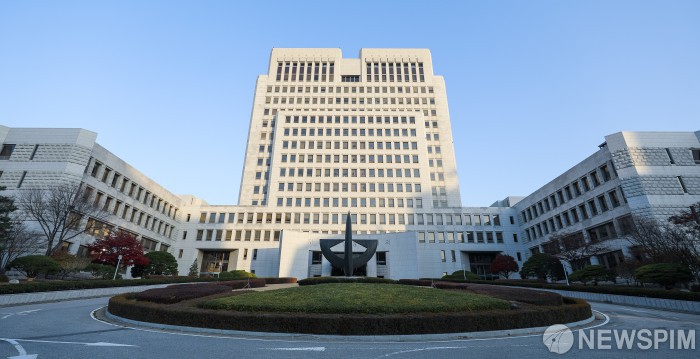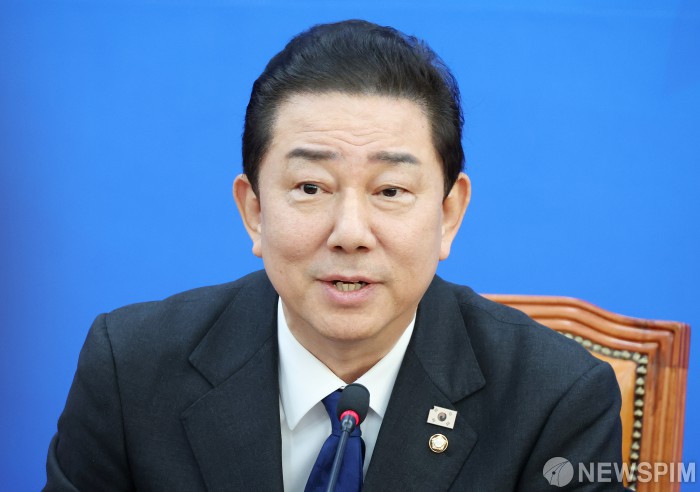
샤리아는 “이슬람법(Islam law)”, “성법(Holy law)” 이라고도 하는데 이 말은 원래 “수장(水場)에 이르는 길” 을 의미하고 있다. <꾸란>에 의하면 어근(sh-r- ‘)의 동사ㆍ명사형의 영문 등을 합쳐서 4가지의 일례가 있는데, 거기에서는 인간에게는 따라야 할 길이 있으며, 그것은 인간의 사혹이나 생각이 아니라, 신이 계시하여 정한 진리로서 이용되고 있다. 인간은 단지 그러한 진리를 받아들여서 그에 복종함으로써 구원에 이르는 것이다. 샤리아라는 것은 인간의 올바른 삶의 방식의 구체적 표현이다. 단, 이슬람에서는 그것은 인간의 이성이나 사혹이 아니라 신의 계시에 의해서만 알 수 있다고 하며 이슬람에서 올바르게 산다는 것은 신에게 복종하여 순종하는 것을 의미하고 있다.
인간이 어느 때, 어느 경우에도 올바르게 생각하고 올바르게 행동해야 한다면 신의 정의는 적어도 이념적으로는 인간 생활의 전 분야에 걸쳐 타당하게 제시된 것이어야 한다. 사실 샤리아는 각 무슬림의 종교적인 생활만이 아니라 현세적ㆍ세속적 생활도 구체적으로 규제하는 것이다. 그 내용은 정결, 참회, 예배, 자카트, 단식, 순례, 장례 등과 관련된 의례적 규범에서 혼인, 이혼, 친자관계, 상속, 노예와 자유인, 계약, 매매, 서약, 증언, 와크프(Wakp)라 불리는 기부한 재산, 소송, 재판, 비(非) 무슬림의 권리와 의무, 범죄와 형벌, 전쟁 등의 공ㆍ사 양법에 걸친 법적인 규범도 포함하고 있다. 샤리아 율법은 그러한 규범과 같은 것으로서 샤리아는 특수한 사람에게 한정되는 것이 아니라 미성년이나 금치산자 등을 제외하고 원칙적으로 공동체 성원 모두에게 동등하게 적용되는 법규로 판단할 수 있다.
이슬람 공동체인 움마라는 것은 샤리아 이념의 지상적인 표현으로서 큰 의미를 가지고 있다. 이와 같이 샤리아는 실정법적인 측면을 포함하여 가지고는 있다고 하지만, 본질적으로 판단할 때 신도가 당연히 따라야 할 것으로 도덕적 의무론인 것으로 보여진다. 그러나 이러한 도덕적인 법 조항이 그렇다고는 하지만 현실 공동체의 질서유지를 위해서 그 일부는 실정법으로서 강제적으로 집행되는 경우가 많으며 이슬람의 정치에 대한 지향은 샤리아의 실정법적 성격과 그 포괄성에 유래하고 있는 것이다. 그만큼 샤리아의 실제적 적용은 결코 일률적인 부분이 아니며, 현실에 기능한 것은 가정법적인 측면에서 더욱 한정되었다고 볼 수 있다.
샤리아는 신의 명령에 의한 가장 구체적이고 체계적으로 만들어진 표현으로서 절대 불변한 법칙으로 보여 지는데, 한편으로 그것은 인간이 해석한 것으로 역사적인 사실이 들어가 있으며, 그것이 고전적인 형태로 성립할 때 까지는 2세기에 걸쳐 자리를 잡을 수밖에 없었다. 이러한 법 해석의 방법론으로서 코란을 보충하는 것으로서는 순나, 이즈마, 퀴야스(Qwiyas, 유추)가 법원으로서 확립되었는데, 이들 모두를 중시하고 어느 범위까지 이용하는지에 따라서 구체적 해석에 차이가 생겨 많은 학파가 생겨나게 된다. 오늘날에는 하나피(Hanapi)파, 말리키(Maliki)파, 샤피이(Shapiy)파, 한발(Hanbal)파로 알려지는 4개의 법학파가 모두 수니파의 공인학파로서 남아 있으며 시아파에는 수나파가 정한 4개의 법학파와는 다른 학파가 있다.
이러한 샤리아가 보편적으로 체계화 된 후의 새로운 사태에 대처하기 위해서 세속법인 카눈(Kanun)이 정해지고, 또한 아다(Ada)도 샤리아를 보완하는 관습법으로서 널리 이용되었다. 19세기 이후, 민법ㆍ형법 등 유럽의 법체계가 강한 영향력을 가지고 적용되며, 또한 유럽에서 딴 기본법으로서의 헌법을 제정하게 되자, 샤리아의 절대성ㆍ완결성의 이념은 점차 종교적인 입장에서의 율법으로 치부되어 오늘에 이르고 있다. 이러한 편협적인 종교성 하나로만 몰려 정치적인 부분에 있어 적용할 수 있는 법안들이 제대로 집행되지 않았고 현대에 샤리아 실시에 대한 요구가 다시금 첨예한 정치적 쟁점이 되는 국면으로도 나타나게 되면서 샤리아는 공식 헌법으로 제정될 가능성이 높아지게 되었다.
*필자/ 정길선.
노바토포스 회원, 역사학자, 고고인류학자, 칼럼니스트, 러시아 과학아카데미 유라시아 고고인류학연구소 연구교수.
*아래는 위 기사를 '구글 번역'으로 번역한 영문 기사의 [전문]입니다. '구글번역'은 이해도 높이기를 위해 노력하고 있습니다. 영문 번역에 오류가 있을 수 있음을 전제로 합니다.<*The following is [the full text] of the English article translated by 'Google Translate'. 'Google Translate' is working hard to improve understanding. It is assumed that there may be errors in the English translation.>
Islamic law Shari'ah, and the definition of Shari'ah law
Columnist Gil-seon Jeong
Shari'ah is also called "Islamic law" or "Holy law," and originally means "the path to the water." According to the Qur'an, there are four examples of combining the English verb and noun forms of the root (sh-r- '), and there is a path that humans must follow, and it is not a path of human deception or thought, but a truth revealed and established by God. Humans simply accept such truth and obey it to attain salvation. Shari'ah is a specific expression of the correct way of life for humans. However, in Islam, it is said that it can only be known through the revelation of God, not through human reason or deception, and living correctly in Islam means obeying and submitting to God.
If humans are to think and act correctly at all times and in all situations, God's justice must be presented appropriately in all areas of human life, at least ideologically. In fact, Shari'ah specifically regulates not only the religious life of each Muslim, but also their worldly and secular life. Its contents include ceremonial norms related to purity, repentance, worship, zakat, fasting, pilgrimage, funerals, etc., as well as legal norms covering public and private law such as marriage, divorce, parent-child relationships, inheritance, slaves and freemen, contracts, sales, oaths, testimony, donated property called Wakp, lawsuits, trials, rights and obligations of non-Muslims, crimes and punishments, and war. Shari'ah law is like such norms, and Shari'ah is not limited to special people, but can be judged as a law that applies equally to all members of the community in principle, except for minors and the incompetent.
The Islamic community, Ummah, has great significance as an earthly expression of Shari'ah ideology. In this way, Sharia includes aspects of positive law, but when judged essentially, it is seen as a moral duty that believers must naturally follow. However, although these moral legal provisions are like that, some of them are often enforced as positive law in order to maintain order in the real community, and the orientation of Islam toward politics is derived from the positive legal nature and comprehensiveness of Sharia. As such, the actual application of Sharia is by no means uniform, and its function in reality can be seen as more limited in terms of subjunctive law. Sharia is seen as the most specific and systematic expression of God's command and an absolutely unchanging law, but on the other hand, it is interpreted by humans and contains historical facts, and it had to take two centuries to establish itself until it was established in a classical form. As a methodology for interpreting the law, Sunna, Ijma, and Qwiyas (analogy) were established as courts to supplement the Qur'an, and depending on how much importance is given to all of them and to what extent they are utilized, differences in specific interpretations arise, resulting in the emergence of many schools of thought. Today, the four schools of law known as Hanafi, Maliki, Shafiy, and Hanbal remain as the official schools of law of the Sunni sect, while Shia have schools other than the four schools of law established by the Sunna sect.
In order to deal with the new situation after the universal systematization of Shari'ah, the secular law Kanun was established, and Ada was also widely used as a customary law to supplement Shari'ah. Since the 19th century, the European legal system, including civil and criminal law, has been applied with great influence, and as a constitution as a basic law from Europe was established, the idea of Shari'ah's absoluteness and completeness has gradually been relegated to a religious position, which continues to this day. As the laws applicable to the political sector were not properly enforced due to the narrow religious nature of this, and the demand for the implementation of Sharia in modern times has once again become a sharp political issue, the possibility of Sharia being established as an official constitution has increased.








